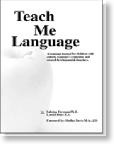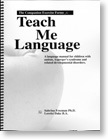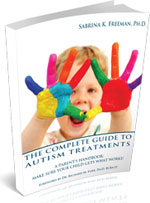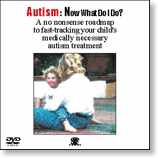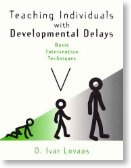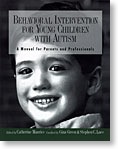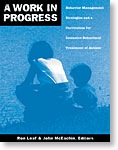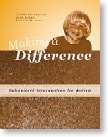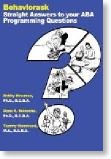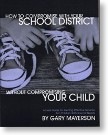autism and asperger's syndrome
Testimonials are best suited to late-night infomercials, not treatment guidance
14/11/11 10:23 Filed in: autism | Asperger's Syndrome
When a child with autism is first diagnosed, we parents are all familiar with the frantic nature of the search for treatment. The physician or psychologist lands the bombshell and then says, “early intervention” is key. But what kind of intervention? The parent is left hanging, not knowing what to do. Some of the first stories parents hear about often include a child who didn’t talk until late but made it far enough to be a university professor today.
Parents and relatives go on a fact finding mission to get advice from people with Autism Spectrum Disorder who are accomplished. We try to glean an understanding of the disorder. Since autism is now so prevalent, every day there are more adults with ASD giving their personal testimonials. Today, in fact, I came across the latest testimonial sponsored by Autism Speaks. The author of the piece has only the best of intentions for parents; he encourages every person with autism spectrum disorder to share their stories.
Unfortunately, hopeful testimonials from adults on the autism spectrum may be very misleading. These adults who are eloquent enough to be in university or graduate school, probably have Asperger’s syndrome and share very little in common with a child diagnosed with autism; in short, their developmental trajectory may be very different. In addition, the research is clear that no one has the proverbial crystal ball to tell you what your child is going to be like as an adult. Even experts in the field cannot predict outcome.
The only statement with which most can agree in the autism field is that early intervention is the key. Those who have respect for science and understand the state of the science in autism treatments, will all agree that Intensive Early Behavioral Treatment (EIBI) is the key to success. The studies that have been produced by EIBI researchers make it clear that it takes a few years before any kind of reliable prediction can be made as to 1) whether the child will lose the diagnosis of autism and if not, 2) where the child will be as an adult in terms of independence, capability, and general happiness.
Advice to new parents: forget about the testimonials provided by well-meaning people who have never met your child and get thee to a qualified, behavioral consultant with expertise in Early Intensive Behavioral Treatment! You’ll never look back.
Parents and relatives go on a fact finding mission to get advice from people with Autism Spectrum Disorder who are accomplished. We try to glean an understanding of the disorder. Since autism is now so prevalent, every day there are more adults with ASD giving their personal testimonials. Today, in fact, I came across the latest testimonial sponsored by Autism Speaks. The author of the piece has only the best of intentions for parents; he encourages every person with autism spectrum disorder to share their stories.
Unfortunately, hopeful testimonials from adults on the autism spectrum may be very misleading. These adults who are eloquent enough to be in university or graduate school, probably have Asperger’s syndrome and share very little in common with a child diagnosed with autism; in short, their developmental trajectory may be very different. In addition, the research is clear that no one has the proverbial crystal ball to tell you what your child is going to be like as an adult. Even experts in the field cannot predict outcome.
The only statement with which most can agree in the autism field is that early intervention is the key. Those who have respect for science and understand the state of the science in autism treatments, will all agree that Intensive Early Behavioral Treatment (EIBI) is the key to success. The studies that have been produced by EIBI researchers make it clear that it takes a few years before any kind of reliable prediction can be made as to 1) whether the child will lose the diagnosis of autism and if not, 2) where the child will be as an adult in terms of independence, capability, and general happiness.
Advice to new parents: forget about the testimonials provided by well-meaning people who have never met your child and get thee to a qualified, behavioral consultant with expertise in Early Intensive Behavioral Treatment! You’ll never look back.
Greed is good: Let's give a group hug to big "pharma"
06/09/11 11:58 Filed in: autism | Asperger's Syndrome
These days, the big pharmaceutical company is the favorite villain on the block. Yes, it is correct that they are sometimes over exuberant with their big DC lobbyists attempting to sway government to vaccinate everything that moves; however, they may also play a vitally important role in the future of our children. Read more...
Vaccines & Autism: Mistrust and the Public Health Dilemma
26/08/11 15:43 Filed in: autism | Asperger's Syndrome
What are free societies to do when citizens no longer trust their scientists? Thousands of parents are not vaccinating their children due to the fear that vaccines cause autism. Read more...
A Review of Staging a Miracle: A Practical Parent’s Guide To Surviving an Autism Diagnosis
19/08/11 19:11 Filed in: autism | Asperger's Syndrome
Staging a Miracle: A Practical Parent’s Guide To Surviving an Autism Diagnosis, by Jason Eden, is a hard-hitting book I came across quite by accident. It has been many years since my child was diagnosed with autism so I don’t generally read books on this topic; however, part of the title “surviving an autism diagnosis” piqued my interest. The author, Jason Eden, writes in a blunt, brutally honest tone which is clearly designed to... Read more...


